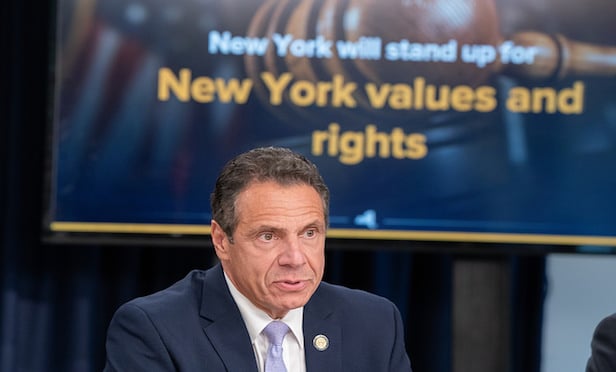WASHINGTON, DC—After the Marketplace Fairness Act died an ignominious death in the House of Representatives last year, advocates for the measure vowed to try again. True to their word, groups supporting the ability of states to tax online retailers for purchases made by residents, have joined forces with friendly lawmakers to introduce new bills this legislative season.
This week the Remote Transactions Parity Act was introduced by House Oversight Chairman Jason Chaffetz (R-Utah) and a group of 15 other House members. It "would modernize current law and strike the appropriate balance between sales tax parity and a state's right to manage tax policy within its borders," Chaffetz said in a prepared statement.
There are some differences between this bill and the Marketplace Fairness Act -- differences that supporters say improves upon the earlier bill and that political observers say are designed to draw more support from House Republicans.
The act offers audit protections for small businesses and exempts businesses under $5 million in gross receipts from remote state audits entirely.
The bill also gives small businesses an exemption from collection requirements in the first year. As a final sweetener, the RTPA would require states to pay for the installation and maintenance cost of the software companies would have to install.
The retail industry, needless to say, is delighted to see some action, again, on this area.
"RTPA will provide sales tax parity at the point of purchase, so that Main Street retailers do not face a competitive disadvantage because they are required to collect the sales tax owed on purchases while remote and online sellers are not required to collect the tax," says National Retail Federation senior vice president for government relations David French in a prepared statement.
The International Council of Shopping Centers also weighed in, applauding the measure, and alluding to the political realities the bill faces. "Earlier this year, the Senate introduced the Marketplace Fairness Act of 2015, which enjoys broad bipartisan support," says Michael P. Kercheval, president and CEO, in a prepared statement. "Today's development signals that the House of Representatives is prepared to move forward with legislation that will provide local retailers with a fair chance to compete."
Indeed, the retail industry was quite pleased with the Senate's reintroduction of the measure this past spring. Hopes are high that this time some legislation will pass, especially with the introduction of a House bill.
Another sign that the thinking around the issue is shifting in favor of brick-and-mortar retailers also came earlier this year, when Supreme Court Justice Anthony Kennedy offered some unusually blunt observations on the "physical presence" standard established in the 1992 case Quill Corporation vs. North Dakota. That was the case that opened the door for online retailers to sell products without collecting sales taxes.
What was most unusual about Kennedy's comments was that they were made during an unrelated case in which online retailers sued the state of Colorado over a tax matter.
In his concurring opinion, Kennedy said it was time to rethink Quill.
"Quill now harms states to a degree far greater than could have been anticipated earlier," Kennedy wrote.
© Touchpoint Markets, All Rights Reserved. Request academic re-use from www.copyright.com. All other uses, submit a request to [email protected]. For more inforrmation visit Asset & Logo Licensing.






